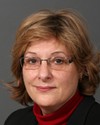Thank you, Madam Chair, and thank you to all of our witnesses. I appreciate hearing from you.
Ms. Smith, I do have a confession to make, I think. In all the years I have been filling out census forms.... I've always worked. As an adult, I've always worked. I took on my first full-time job when I was 18, but when my children were little I was home for a very brief time and then went back to paid employment. But I never, ever considered reading to my children as unpaid work, so I guess I've skewed all of the data that the rest of you have been using. To me, reading to my children was an absolute privilege, and it was time that I looked on, as a mother, as quality time with them. So I'm afraid that I may have skewed the data that you've been using all these years, and you may need to go back and reflect on how others have seen that, because I think it's a very subjective kind of assessment.
I would never have considered shopping for my family as unpaid work. Again, I say that skews data, because again, it's very, very subjective in how people approach these questions. I don't know how you get around that, unless you start to take every question and break it down into multiple components. In the same way, my husband would never consider cutting the grass part of unpaid work. It's simply a household thing that we do because we own the home and we want to maintain our home to its very best advantage. It would never have occurred to him to include that in unpaid work. So again, I say the data you've been using all these years has been skewed, because my responses have not been appropriately delineated in the way you would have said.
That's only a comment to you, not really a question. But I do have a question for Ms. Mowbray, if you don't mind.




